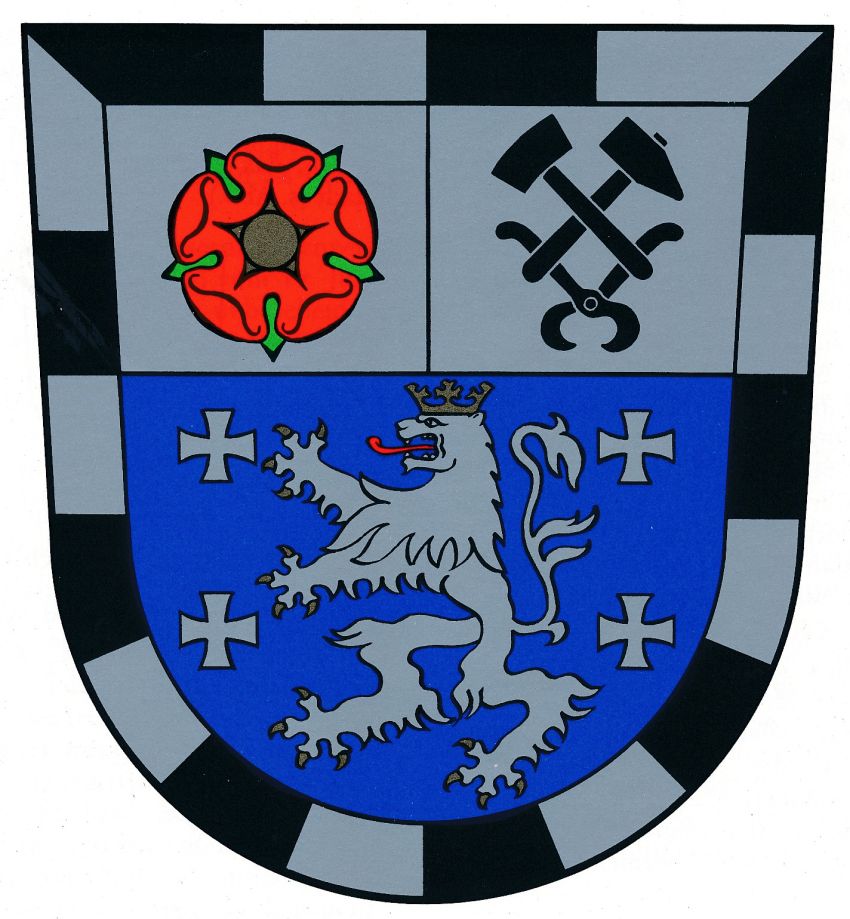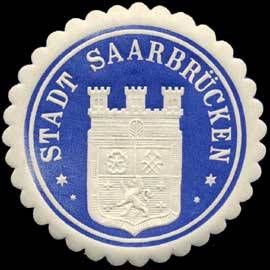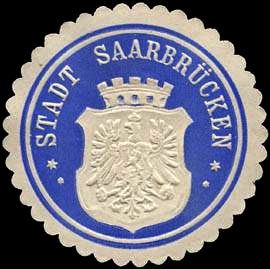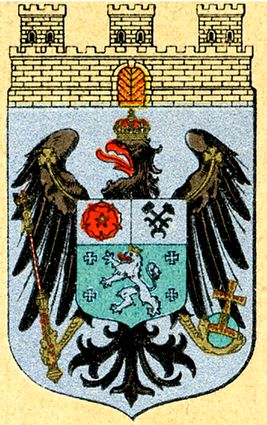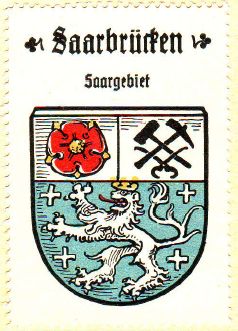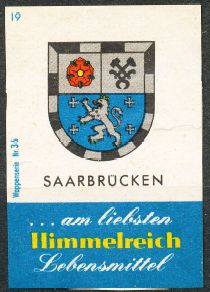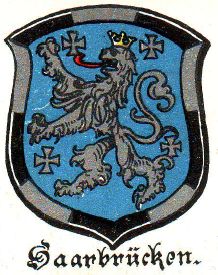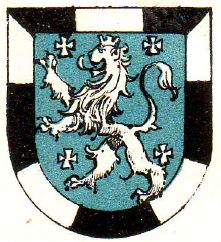Saarbrücken
This page is part of the German heraldry portal |
Heraldry of the World |
|
German heraldry:
|
Selected collector's items from Germany:
|
SAARBRÜCKEN
State : Saarland
District (Kreis) : Regionalverband Saarbrücken
Additions : 1909 Sankt Johann, Malstatt-Burbach; 1974 Altenkessel, Amt Brebach, Bischmisheim, Brebach-Fechingen (1959 Brebach, Fechingen), Bübingen, Dudweiler, Ensheim, Eschringen, Gersweiler, Güdingen, Klarenthal, Schafbrücke, Scheidt,
Official blazon
(de)
Origin/meaning
The arms were granted in 1909 after the merger of the three cities to new Saarbrücken.
The lion is the lion of Nassau-Saarbrücken, the county of which the city was the capital. The origin of the bordure I don't know. The rose is the old symbol for St. Johann and, combined with the lion, was used on the common seals of Saarbrücken and St. Johann since 1462. The miners tools were taken from the arms of Malstatt-Burbach.
The above arms are the smaller arms of the city, which are also used in daily life. The large arms show the Prussian eagle behind the shield, and holding the Royal scepter an orb (regalia) in his claws.
| Seal from around 1900 |
Seal from around 1920 |
The large arms as granted in 1909 |
| The arms by Hupp in the Kaffee Hag albums +/- 1925 |
The arms on a 1960s matchox label |
The arms in the Abadie albums |
The previous arms of the city showed only the lion in the bordure as can be seen from the images below from around 1900.
| |
|
Contact and Support
Partners:
Your logo here ?
Contact us
© since 1995, Heraldry of the World, Ralf Hartemink 
Index of the site
Literature : Stadler, 1964-1971, 8 volumes; Hupp, O: Kaffee Hag albums, 1920s


